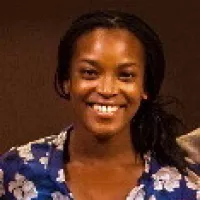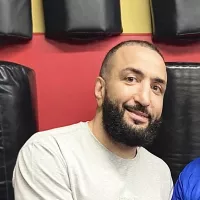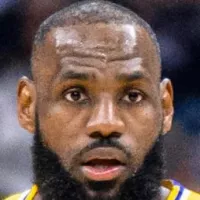June 13, 1902
Five businessmen founded the Minnesota Mining and Manufacturing Company as a mining venture in Two Harbors, Minnesota, making their first sale on June 13, 1902. The goal was to mine corundum, a crystalline form of aluminium oxide, which failed because the mine's mineral holdings were anorthosite, a feldspar which had no commercial value. Co-founder John Dwan solicited funds in exchange for stock and Edgar Ober and Lucius Ordway took over the company in 1905. The company moved to Duluth and began researching and producing sandpaper products. William L. McKnight, later a key executive, joined the company in 1907, and A. G. Bush joined in 1909. 3M finally became financially stable in 1916 and was able to pay dividends.
1910
The company moved to Saint Paul in 1910, where it remained for 52 years before outgrowing the campus and moving to its current headquarters at 3M Center in Maplewood, Minnesota, in 1962.
1924
As of 2019, 3M produces approximately 60,000 products, and has four business groups focused on safety and industrial, transportation and electronics, health care, and consumer products. 3M obtained its first patent in 1924 and acquires approximately 3,000 new patents annually. The company surpassed the 100,000-patent threshold in 2014.
1947
In 1947, 3M began producing perfluorooctanoic acid (PFOA), an industrial surfactant and chemical feedstock, by electrochemical fluorination. In 1951, DuPont purchased PFOA from then-Minnesota Mining and Manufacturing Company for use in the manufacturing of teflon, a product that brought DuPont a billion-dollar-a-year profit by the 1990s. DuPont referred to PFOA as C8. The original formula for Scotchgard, a water repellent applied to fabrics, was discovered accidentally in 1952 by 3M chemists Patsy Sherman and Samuel Smith. Sales began in 1956, and in 1973 the two chemists received a patent for the formula.
1972
The N95 respirator mask was developed by 3M and approved in 1972. Due to its ability to filter viral particulates, its use was recommended during the COVID-19 pandemic but supply soon became short. Much of the company's supply had already been sold prior to the outbreak.
1975
3M's Pollution Prevention Pays (3P) program was established in 1975. The program initially focused on pollution reduction at the plant level and was expanded to promote recycling and reduce waste across all divisions in 1989. By the early 1990s, approximately 2,500 3P projects decreased the company's total global pollutant generation by 50 percent and saved 3M $500–600 million by eliminating the production of waste requiring subsequent treatment.
August 09, 1976
As of 2012, 3M was one of the 30 companies included in the Dow Jones Industrial Average, added on August 9, 1976, and was 97 on the 2011 Fortune 500 list. On January 3, 2012, it was announced that the Office and Consumer Products Division of Avery Dennison was being bought by 3M for $550 million. The transaction was canceled by 3M in September 2012 amid antitrust concerns.
1977
3M launched "Press 'n Peel" a sticky bookmark page holder in stores in four cities in 1977, but the results were disappointing. A year later 3M instead issued free samples of it as a sticky note directly to consumers in Boise, Idaho, with 95% of those who tried them indicating they would buy the product. The product was sold as "Post-Its" in 1979 when the rollout introduction began, and was sold across the United States from April 6, 1980. The following year they were launched in Canada and Europe.
1979
3M's presidents have included: Edgar B. Ober (1905–1929), McKnight (1929–1949), Richard P. Carlton (1949–1953), Herbert P. Buetow (1953–1963), Cross (1963–1966), Heltzer (1966–1970), and Herzog (1970–1975). In the late 1970s, the position was separated into roles for U.S. and international operations. The position overseeing domestic operations was first held by Lehr, followed by John Pitblado from 1979 to 1981, then Jacobson from 1984 to 1991. James A. Thwaits led international operations starting in 1979. Buckley and Thulin were president during 2005–2012, and 2012–2018, respectively.
1979
In the late 1970s, 3M Mincom was involved in some of the first digital audio recordings to see commercial release when a prototype machine was brought to the Sound 80 studios in Minneapolis. In 1979 3M introduced a digital audio recording system called "3M Digital Audio Mastering System".
1980
In 1980, the company acquired Comtal, a manufacturer of digital image processors.
1983
In 1983, the Oakdale Dump in Oakdale, Minnesota, was listed as an EPA Superfund site after significant groundwater and soil contamination by VOCs and heavy metals was uncovered. The Oakdale Dump was a 3M dumping site utilized through the 1940s and 1950s.
1997
In the late 1950s, 3M produced the first asthma inhaler, but the company did not enter the pharmaceutical industry until the mid-1960s with the acquisition of Riker Laboratories, moving it from California to Minnesota. 3M retained the Riker Laboratories name for the subsidiary until at least 1985. In the mid-1990s, 3M Pharmaceuticals, as the division came to be called, produced the first CFC-free asthma inhaler in response to adoption of the Montreal Protocol by the United States. In the 1980s and 1990s, the company spent fifteen years developing a topical cream delivery technology which led in 1997 to health authority approval and marketing of a symptomatic treatment for genital warts, Aldara. 3M divested its pharmaceutical unit through three deals in 2006, netting more than US$2 billion. At the time, 3M Pharmaceuticals comprised about 20% of 3M's healthcare business and employed just over a thousand people.
1999
In 1999, the EPA began investigating perfluorinated chemicals after receiving data on the global distribution and toxicity of perfluorooctanesulfonic acid (PFOS). These materials are part of a broad group of perfluoroalkyl and polyfluoroalkyl substances often referred to as PFAS, each of which has different chemical properties. 3M, the former primary producer of PFOS from the U.S., announced the phase-out of PFOS, perfluorooctanoic acid, and PFOS-related product production in May 2000. Perfluorinated compounds produced by 3M have been used in non-stick cookware, stain-resistant fabrics, and other products.
April 08, 2002
On April 8, 2002, 3M's 100th anniversary, the company changed its legal name to "3M Company". On September 8, 2008, 3M announced an agreement to acquire Meguiar's, a car-care products company that was family-owned for over a century. In August 2010, 3M acquired Cogent Systems for $943 million, and on October 13, 2010, 3M completed acquisition of Arizant Inc. In December 2011, 3M completed the acquisition of the Winterthur Technology Group, a bonded abrasives company.
2006
The Cottage Grove facility manufactured PFAS from the 1940s to 2002. In response to PFAS contamination of the Mississippi River and surrounding area, 3M stated the area will be "cleaned through a combination of groundwater pump-out wells and soil sediment excavation". The restoration plan was based on an analysis of the company property and surrounding lands. The on-site water treatment facility that handled the plant's post-production water was not capable of removing PFAS, which were released into the nearby Mississippi River. The clean-up cost estimate, which included a granular activated carbon system to remove PFAS from the ground water was $50 to $56 million, funded from a $147 million environmental reserve set aside in 2006.
2008
In 2008, 3M created the Renewable Energy Division within 3M's Industrial and Transportation Business to focus on Energy Generation and Energy Management.
2008
The Combat Arms Earplugs, Version 2 (CAEv2), was developed by Aearo Technologies for U.S. military and civilian use. The CAEv2 was a double ended earplug that 3M claimed would offer users different levels of protection. Between 2003 and 2015, these earplugs were standard issue to members of the U.S. military. 3M acquired Aearo Technologies in 2008.
2010
In May 2013, 3M sold Scientific Anglers and Ross Reels to Orvis. Ross Reels had been acquired by 3M in 2010.
2011
In 2011 by 3M created CloudLibrary as part of its library systems unit as a competitor to OverDrive, Inc.; in 2015 3M sold the North American part of that unit to Bibliotheca Group GmbH, a company founded in 2011 that was funded by One Equity Partners Capital Advisors, a division of JP Morgan Chase.
March 2016
During March 2016, 3M completed a 400,000-square-foot (37,000 m ) research-and-development building on its Maplewood campus that cost $150 million. Seven hundred scientists from various divisions occupy the building. They were previously scattered across the campus. 3M hopes concentrating its research and development in this manner will improve collaboration. 3M received $9.6 million in local tax increment financing and relief from state sales taxes in order to assist with development of the building.
May 2016
In May 2016, Moldex-Metric, Inc., a 3M competitor, filed a whistleblower complaint against 3M under the False Claims Act. Moldex-Metric claimed that 3M made false claims to the U.S. government about the safety of its earplugs and that it knew the earplugs had an inherently defective design. In 2018, 3M agreed to pay $9.1 million to the U.S. government to resolve the allegations, without admitting liability.
2017
3M's general offices, corporate research laboratories, and some division laboratories in the U.S. are in St. Paul, Minnesota. In the United States, 3M operates 80 manufacturing facilities in 29 states, and 125 manufacturing and converting facilities in 37 countries outside the U.S. (in 2017).
2017
In 2017, 3M had net sales for the year of $31.657 billion, up from $30.109 billion the year before. In 2018, it was reported that the company would pay $850 million to end the Minnesota water pollution case concerning perfluorochemicals.
March 2017
In March 2017, 3M purchased Johnson Controls International Plc's safety gear business, Scott Safety, for $2 billion.
February 2018
In late 2010, the state of Minnesota sued 3M for $5 billion in punitive damages, claiming they released PFCs—classified a toxic chemical by the EPA—into local waterways. A settlement for $850 million was reached in February 2018. In 2019, 3M, along with the Chemours Company and DuPont, appeared before lawmakers to deny responsibility, with company Senior VP of Corporate Affairs Denise Rutherford arguing that the chemicals pose no human health threats at current levels and that there were no victims.
May 25, 2018
On May 25, 2018, Michael F. Roman was appointed CEO by the board of directors. On December 19, 2018, 3M announced it had entered into a definitive agreement to acquire the technology business of M*Modal, for a total enterprise value of $1.0 billion.
2019
Board chairs have included: William L. McKnight (1949–1966), Bert S. Cross (1966–1970), Harry Heltzer (1970–1975), Raymond H. Herzog (1975–1980), Lewis W. Lehr (1980–1986), Allen F. Jacobson (1986–1991), Livio DeSimone (1991–2001), James McNerney (2001–2005), George W. Buckley (2005–2012), and Inge Thulin (2012–2018). Thulin continued as executive chairman until Michael F. Roman was appointed in 2019.
October 2019
In October 2019, 3M purchased Acelity and its KCI subsidiaries for $6.7 billion, including assumption of debt and other adjustments.
May 01, 2020
On May 1, 2020, 3M divested substantially all of its drug delivery business to an affiliate of Altaris Capital Partners, LLC. for approximately $650 million, including a 17% interest in the new operating company, Kindeva Drug Delivery.
December 31, 2020
3M reported Total CO2e emissions (Direct + Indirect) for the twelve months ending December 31, 2020, at 5,280 Kt (-550 /-9.4% y-o-y) and plans to reduce emissions 50% by 2030 from a 2019 base year. The company also aims achieve carbon neutrality by 2050.
2021
3M made $35.4 billion in total sales in 2021 and ranked number 102 in the Fortune 500 list of the largest United States corporations by total revenue. As of 2021 , the company had approximately 95,000 employees and operations in more than 70 countries. There are a few international subsidiaries, such as 3M India, 3M Japan, and 3M Canada.
2021
In 2021, research had determined that 3M's Zwijndrecht (Belgium) factory caused PFOS pollution that may be contaminating agricultural products within a 15 kilometer radius of the plant which includes Antwerp. The Flemish Government has paid 63 million euros for cleanup costs so far with 3M contributing 75,000 euros. The Flemish Government issued measures advising against the consumption of, for example, home-grown eggs within a radius of 5 kilometers.
December 2021
In December 2021, 3M announced that it would merge its food-safety business with food testing and animal healthcare products maker Neogen. The deal, with an enterprise value of about $5.3 billion, closed in September 2022.
July 2022
In July 2022, the company announced it would spin off its healthcare assets to form a new, independent firm, likely completing the transaction in 2023. 3M will retain an ownership stake of 19.9% in the new, publicly-traded health care company and gradually divest the holdings. The company will be known as Solventum Corporation.
December 2022
In December 2022, the company announced plans to stop producing and using so-called forever chemicals (per and polyfluoroalkyl ), which have been commonly used in items such as food packaging, cellphones, nonstick pans, firefighting foams, and clothing. These chemicals are well known for their water-resistant and nonstick properties, but they are also dangerous pollutants that are linked to serious health problems, including ulcerative colitis and cancer. The move comes as governments in the Netherlands and the United States consider actions against 3M.
2023
In 2023, 3M reached an agreement to pay a $10.3bn settlement with numerous US public water systems to resolve thousands of lawsuits over PFAS contamination.
June 2023
In June 2023, 3M reached a settlement to pay more than $10 billion to US public water systems to resolve claims over the company's contamination of water with PFASs (so-called forever chemicals). It has been revealed that the company knew of the health harms of PFAS in the 1990s, yet concealed these harms and continues to sell contaminated products.
August 2023
3M settled close to 260,000 lawsuits in August 2023 by agreeing to pay $6 billion to current and former U.S. military members who were affected.
March 2024
In March 2024, 3M announced the appointment of William "Bill" Brown as chief executive officer to take effect on May 1, 2024. Michael Roman would remain in the role of executive chairman. Brown, 61, is the former chairman of the board and chief executive officer of L3Harris Technologies.
Trending

38 minutes ago Wunmi Mosaku Discusses 'Sinners,' Ryan Coogler, blues music and working with Michael B. Jordan

39 minutes ago Jack O'Connell teases '28 Years Later' role and discusses 'Sinners' vampire concept.

39 minutes ago Ed Sheeran's surprise Coachella appearance with Post Malone; Alex Warren observations noted.

39 minutes ago Salma Hayek's beauty secrets revealed by daughter Valentina, skincare advice shared, new neck appearance.

2 hours ago Belal Muhammad Thwarts Makhachev's Welterweight Ambitions, Dismisses Topuria's Title Shot Opportunity

2 hours ago Borralho calls out Chimaev and Imavov who avoided fights and title eliminator.
Popular

Pope Francis is the current head of the Catholic Church...
The Real ID Act of is a US federal law...

Cristiano Ronaldo often nicknamed CR is a highly decorated Portuguese...

Michael Jordan also known as MJ is an American businessman...

Donald John Trump is an American politician media personality and...

LeBron James nicknamed King James is a highly decorated American...